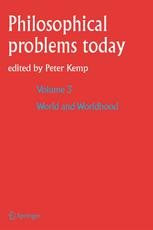

Most ebook files are in PDF format, so you can easily read them using various software such as Foxit Reader or directly on the Google Chrome browser.
Some ebook files are released by publishers in other formats such as .awz, .mobi, .epub, .fb2, etc. You may need to install specific software to read these formats on mobile/PC, such as Calibre.
Please read the tutorial at this link: https://ebookbell.com/faq
We offer FREE conversion to the popular formats you request; however, this may take some time. Therefore, right after payment, please email us, and we will try to provide the service as quickly as possible.
For some exceptional file formats or broken links (if any), please refrain from opening any disputes. Instead, email us first, and we will try to assist within a maximum of 6 hours.
EbookBell Team

0.0
0 reviewsIn this book philosophers try to answer the following question: What is globalization and what does ‘globe’ or ‘world’ (monde) signify?
Rémi Brague returns to the Greek idea of the cosmos in order to track the worldhood (mondanéité) of the world, that is, the process by which the idea of the world is formed. Don Ihde shows how a world has developed, in which technologies are no longer considered neutral means serving the ends of human action, but become the very means by which people exist in the world. Vittorio Mathieu describes the economical world at two levels – that of the individual and that of society. Tomonobu Imamichi analyses the capacity of aesthetic experience to disclose a world other than the world of technological efficiency. Francisco Miró Quesada C. emphasises that the great political questions are not solvable without worldviews that express value systems. David Rasmussen describes sensus communis as a cosmopolitan concept, which founds a political globalization of the world. And Peter Kemp attempts to grasp the meaning of that globalization upon which the destiny of our planet depends.